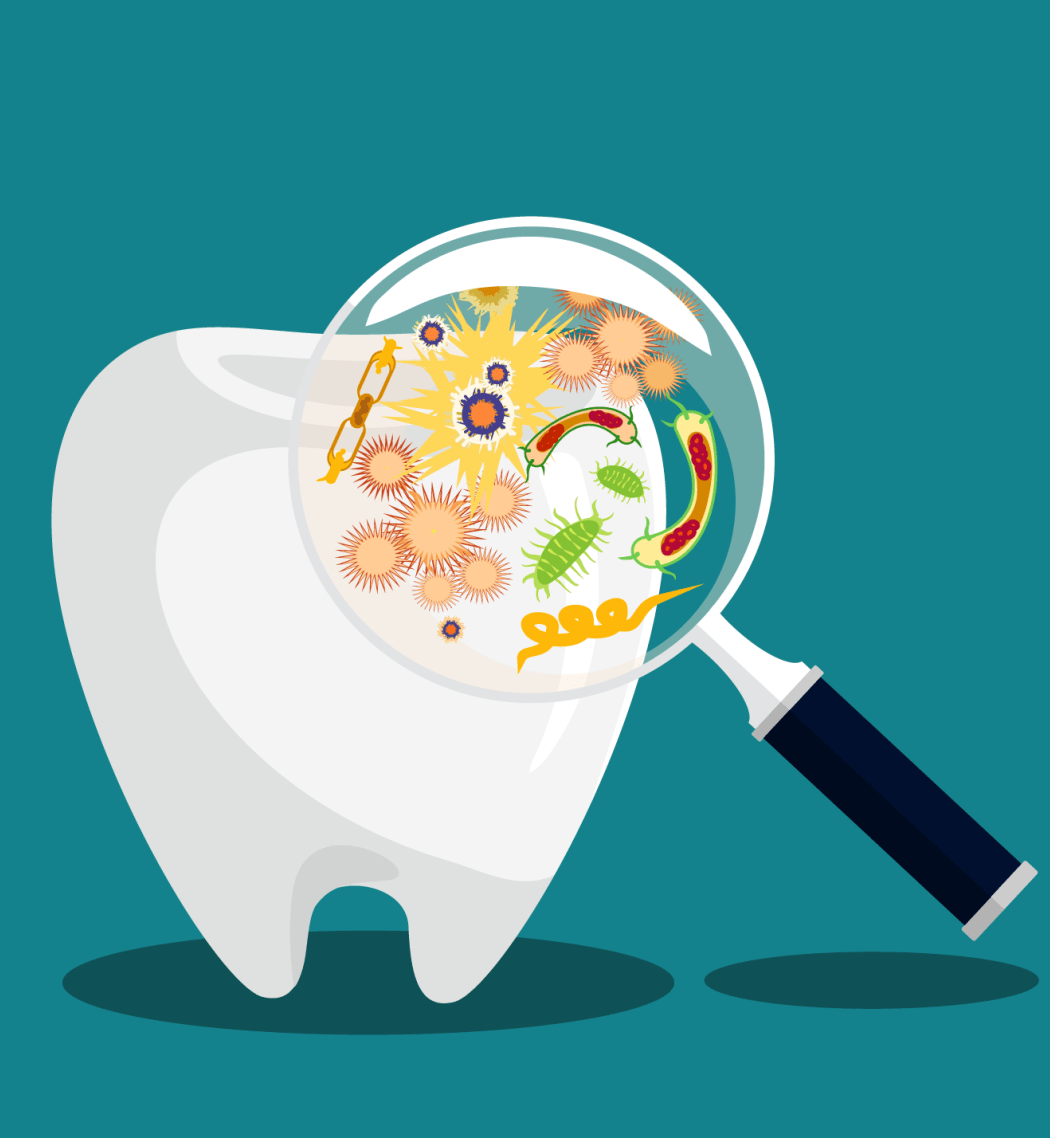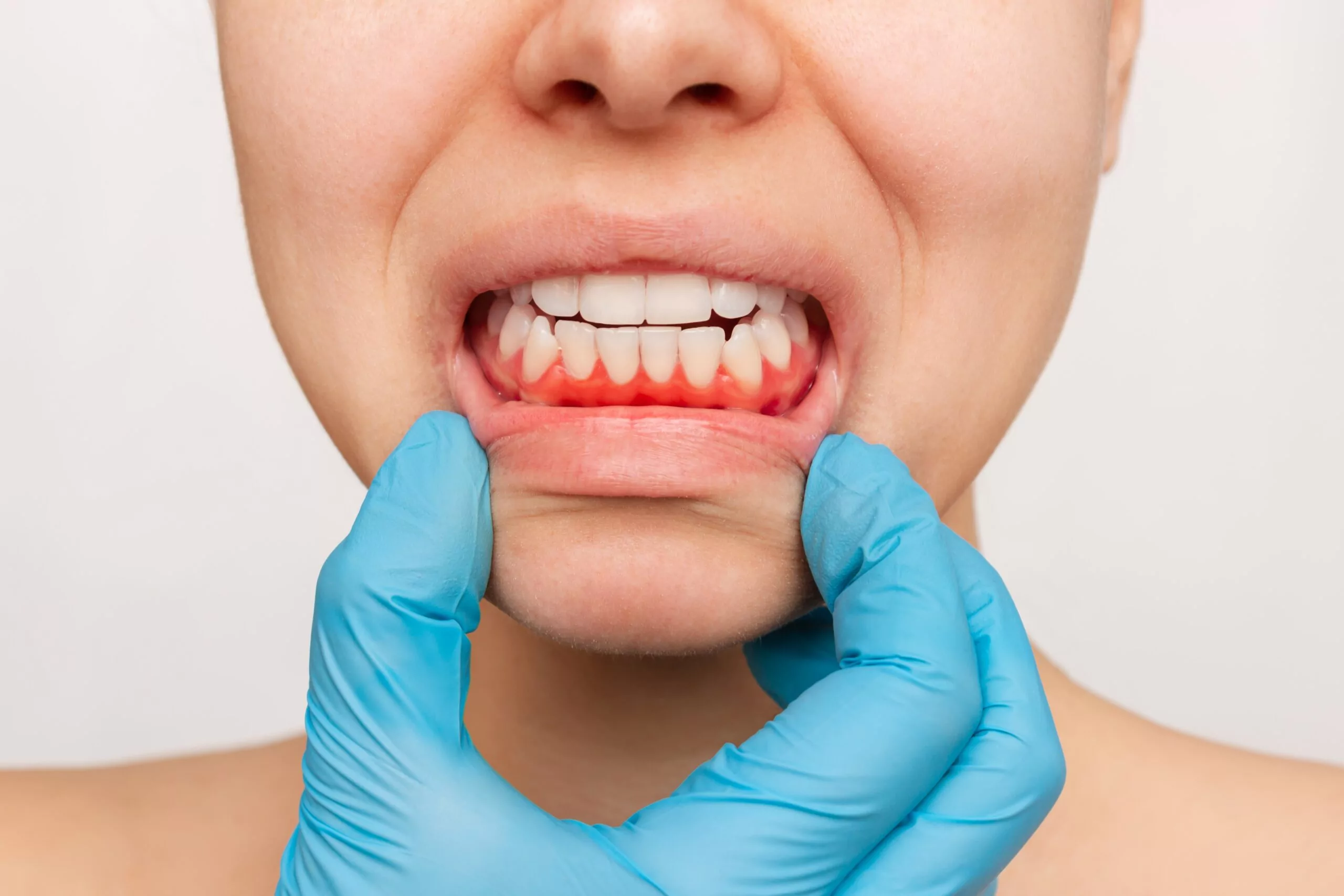Have you ever noticed redness, swelling, or discomfort on your face and wondered if it could be linked to something as simple as your oral health? What you might not realize is that the health of your mouth plays a much bigger role in your overall well-being than you think.
When your gums are inflamed, it’s not just a local problem—it can trigger facial inflammation and even affect other parts of your body. Understanding this surprising connection could change how you care for your smile and your skin. Keep reading to discover how taking care of your teeth and gums can help reduce facial inflammation and boost your confidence.
Your face and your health are more connected than you know.

Credit: www.ucsf.edu
Oral Bacteria And Facial Inflammation
Oral bacteria play a key role in facial inflammation. These tiny microbes live in the mouth and can cause infections. When oral bacteria grow unchecked, they can trigger inflammation beyond the mouth. This inflammation can affect the skin, leading to redness, swelling, and irritation on the face. Understanding this link helps reveal how oral health impacts overall skin health.
How Oral Infections Trigger Skin Reactions
Oral infections create a breeding ground for harmful bacteria. These bacteria release toxins that irritate tissues. The body responds with inflammation to fight the infection. This inflammatory response can spread to nearby facial skin. The skin may develop rashes, pimples, or other signs of irritation. Persistent oral infections often worsen skin problems over time.
Bacterial Pathways From Mouth To Skin
Bacteria can travel from the mouth to the skin through the bloodstream. Damaged gums allow bacteria to enter blood vessels easily. Once in the blood, bacteria reach facial tissues and trigger immune responses. This process causes swelling and redness in the skin. Poor oral hygiene increases the chance of bacteria spreading to the face.
Gum Disease And Systemic Inflammation
Gum disease is more than just a problem for your mouth. It can cause inflammation throughout your body. This inflammation can affect many parts of your health, including your face and internal organs. Understanding the connection between gum disease and systemic inflammation helps protect your overall well-being.
Periodontitis And Its Wider Effects
Periodontitis is a severe form of gum disease. It happens when bacteria build up under the gums. This causes the gums to become red, swollen, and bleed easily. The infection can damage the bone that supports teeth. This damage can lead to tooth loss if left untreated.
The bacteria from periodontitis can enter the bloodstream. Once inside, they can trigger inflammation in other parts of the body. This systemic inflammation may contribute to problems far beyond the mouth. It can worsen conditions like diabetes and arthritis.
Inflammation Link To Heart And Brain Health
The inflammation caused by gum disease may also affect the heart. Research shows a connection between gum inflammation and heart disease. The bacteria can cause arteries to narrow and increase the risk of heart attacks.
Brain health is also linked to gum disease. Inflammation may play a role in memory loss and dementia. The harmful bacteria and immune response can harm brain cells over time. Keeping gums healthy helps reduce these risks and supports overall health.
Signs Of Oral Inflammation
Oral inflammation often signals underlying health issues. Recognizing its signs early helps prevent serious complications. It affects not only the mouth but also the face and jaw area. Awareness of symptoms can guide timely dental or medical visits.
Inflammation in the mouth may show through various visible and physical changes. These signs range from pain to swelling. Identifying these symptoms improves oral care and overall health.
Common Symptoms In Mouth And Jaw
Pain or tenderness in the gums and jaw is a frequent sign. Gums may bleed easily during brushing or flossing. Redness and swelling around teeth indicate irritation. Mouth sores or ulcers can also appear, causing discomfort. Bad breath or a bad taste might persist despite cleaning. Tooth sensitivity to hot or cold foods often accompanies inflammation.
Identifying Facial Swelling And Rashes
Facial swelling near the jaw or cheeks suggests spreading inflammation. Skin around the mouth might become red or warm to touch. Rashes or bumps can develop on the face, linked to oral infections. These skin changes sometimes cause itching or pain. Noticing these signs early can help stop further skin damage.

Credit: www.cardiovascularconsultantspc.com
Nutrients Supporting Oral Health
Good oral health depends a lot on the nutrients you take in daily. Nutrients help fight inflammation in your mouth and keep your gums strong. Eating the right foods supports both your teeth and skin, reducing swelling and pain. Understanding which vitamins and diet habits help can improve your overall oral health.
Vitamins That Reduce Mouth Inflammation
Vitamin C plays a big role in healing and protecting your gums. It stops bleeding and reduces swelling caused by gum disease. Vitamin D helps your body absorb calcium, which is important for strong teeth and bones. Vitamin A keeps the mucous membranes in your mouth healthy and fights infection. B vitamins, especially B12 and folate, support cell repair and reduce inflammation. Including these vitamins in your diet helps lower mouth pain and swelling.
Diet Tips For Healthy Gums And Skin
Choose foods rich in antioxidants like fruits and vegetables. They protect your gums from damage and reduce inflammation. Drink plenty of water to keep your mouth moist and wash away bacteria. Avoid sugary snacks and drinks that cause plaque buildup and gum irritation. Eating nuts, seeds, and fish provides healthy fats that support skin and gum health. A balanced diet with these foods helps maintain a fresh smile and clear skin.
Oral Health Impact On Facial Appearance
Oral health plays a vital role in shaping facial appearance. Healthy teeth and gums support strong facial muscles. They help maintain the natural structure of the face. Poor oral hygiene can lead to inflammation, affecting the skin and soft tissues. This causes visible changes in the face, such as swelling and redness. Understanding this connection helps highlight the importance of daily oral care.
Facial inflammation often starts inside the mouth. Gum disease and infections increase the risk of skin problems. The bacteria in the mouth can spread to the face. This causes irritation and damages the skin barrier. A clean and healthy mouth supports a clearer, more youthful complexion.
Effects Of Dental Neglect On Skin
Ignoring dental care invites harmful bacteria to grow. These bacteria cause gum inflammation and infections. They can enter the bloodstream and reach facial skin. The skin may react with rashes, redness, and pimples. Some people develop chronic skin conditions linked to oral bacteria. Dental neglect also causes bad breath and tooth decay. These issues affect confidence and the overall look of the face.
Preventing Facial Issues Through Hygiene
Good oral hygiene reduces the risk of facial inflammation. Brushing twice a day removes plaque and bacteria. Flossing cleans areas a toothbrush misses. Regular dental check-ups catch problems early. Treating gum disease stops bacteria from spreading. Drinking water keeps the mouth moist and helps wash away debris. Avoiding tobacco and sugary foods also protects oral health. A healthy mouth supports fresh breath and clear skin.

Credit: www.stmarysdental.com
Frequently Asked Questions
Can Poor Oral Health Cause Inflammation?
Poor oral health causes gum inflammation by allowing plaque buildup to irritate gums. This triggers swelling and infection.
Can Dental Problems Cause Skin Problems?
Dental problems can cause skin issues by spreading harmful bacteria. This leads to inflammation, rashes, acne, and psoriasis on the face. Maintaining oral hygiene helps prevent these skin problems linked to dental infections and gum disease.
What Are Two Signs Of Inflammation In The Mouth?
Two signs of inflammation in the mouth are swollen gums and painful sores. These symptoms often indicate irritation or infection.
What Vitamins Are Good For Mouth Inflammation?
Vitamins A, C, D, and E help reduce mouth inflammation. Vitamin B complex supports tissue healing and oral health.
Can Poor Oral Health Cause Facial Inflammation?
Yes, poor oral hygiene can lead to gum inflammation that spreads to facial tissues.
How Does Gum Disease Affect Facial Skin?
Gum disease bacteria can enter the skin, causing rashes and facial swelling.
Conclusion
Oral health plays a key role in overall facial wellness. Poor dental care can cause gum inflammation and facial swelling. This inflammation may trigger skin problems and discomfort. Keeping your mouth clean helps reduce harmful bacteria and inflammation. Simple habits like brushing and flossing protect your face and body health.
Regular dental visits catch issues before they worsen. Healthy teeth and gums support a healthier, clearer complexion. Pay attention to your oral hygiene to prevent facial inflammation risks. Small daily steps lead to big health benefits over time.
 Skip to content
Skip to content